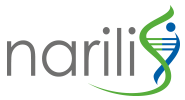NARILIS welcomes three new researchers thanks to the “Connect with Wallonia - Come 2 Wallonia” (C2W) program
End 2021, UMons and UNamur officially launched the first call for applications in the frame of the new fellowship program C2W. This joint initiative received a European funding of 4,5 M€ (Marie Skłodowska Curie COFUND action), enabling UMons and UNamur to offer 30 fellowships of 24 months each to highly qualified international postdoc researchers. Recruitment is undertaken in two stages. As a result of the first C2W call, UMons and UNamur are proud to welcome 15 new postdocs! The research projects selected by external panels of international experts encompass various fields such as mathematical and theoretical physics, antibiotic resistance, microbiology, pedagogy, robotics, geology, colonialism, ancient and medieval history, and ecology, among others.
In this context, three of these new postdocs are joining NARILIS institute!
After two postdoc positions at Imperial College in London and Harvard University in Boston, Dr. Séverin Ronneau is now back at UNamur and is hosted by the laboratory of Prof. Régis Hallez (URBM). His project entitled “SpoT regulation during infection” aims at identifying new regulations of enzymes synthesizing and hydrolysing (p)ppGpp alarmone in Salmonella during macrophage infection. Read more
French microbiologist Dr. Paul Guiraud also joined the team of Régis Hallez. His research focuses on the dynamic spatio-temporal regulation of peptidoglycan synthesis by the actin-like protein MreB in Caulobacter crescentus. Read more
Dr. Dmytro Strilets is a Ukrainian researcher in chemistry. He recently moved to the Laboratory of bio-organic chemistry (CBO) led by Prof. Stéphane Vincent. The goal of his research project is to explore a novel way to discover and develop antibacterial agents targeting the multidrug-resistant and WHO priority pathogen Acinetobacter baumannii. Read more
The project's second call will open in May 2023! More info at https://cometowallonia.eu/call-to-action/
This project has received funding from the European Union’s Horizon 2020 research and innovation programme under the Marie Skłodowska-Curie grant agreement No 101034383.
 NAmur Research Institute for LIfe Sciences
NAmur Research Institute for LIfe Sciences


